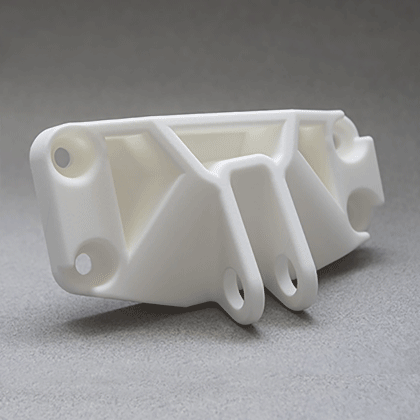In the realm of modern manufacturing, SLS printing services have emerged as a game-changer, particularly for prototyping. Selective Laser Sintering (SLS) is a 3D printing technology that utilizes a laser to fuse powdered material, creating complex geometries that traditional manufacturing methods often struggle to achieve. But what makes SLS printing an ideal choice for your prototyping needs? Let’s explore.

Understanding SLS Printing Services
The SLS printing service process begins with a 3D model, which is sliced into layers. A laser then selectively fuses the powdered material layer by layer. This method allows for the creation of intricate designs that are not only lightweight but also durable. The versatility of materials used in SLS printing, such as nylon and polyamide, further enhances its appeal.
Key Advantages of SLS Printing
- Complex Geometries: SLS printing enables the production of complex shapes that are difficult or impossible to achieve with traditional methods.
- Material Efficiency: The powder that is not used during the printing process can be recycled, minimizing waste.
- Durability: Parts produced through SLS are known for their strength and can withstand functional testing.
- Rapid Prototyping: The speed of SLS printing allows for quick iterations, making it easier to refine designs.
Why Choose SLS Printing Services for Prototyping?
When considering your options for prototyping, the SLS printing service stands out for several reasons. First, its ability to produce functional prototypes means that you can test your designs under real-world conditions. This is crucial for industries such as aerospace, automotive, and consumer products, where performance is paramount.
Moreover, SLS printing offers a high degree of customization. Are you looking to create a unique design? With SLS, you can easily modify your prototypes without the need for expensive tooling changes. This flexibility can significantly reduce time-to-market for new products.
Cost-Effectiveness of SLS Printing Services
While the initial investment in SLS printing may seem high, the long-term savings can be substantial. By reducing material waste and minimizing the need for tooling, SLS printing can lower overall production costs. Additionally, the rapid turnaround times associated with SLS printing services mean that you can bring your products to market faster, enhancing your competitive edge.
Conclusion
In conclusion, the advantages of choosing SLS printing services for your prototyping needs are clear. From the ability to create complex geometries to the cost-effectiveness of the process, SLS printing offers a unique solution for modern manufacturing challenges. If you are interested in exploring this technology further, consider visiting  for more information.
for more information.





